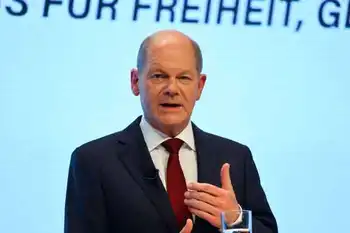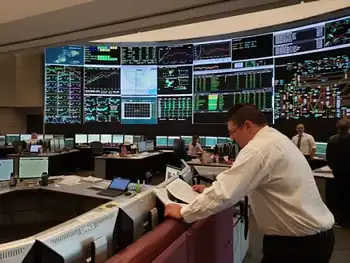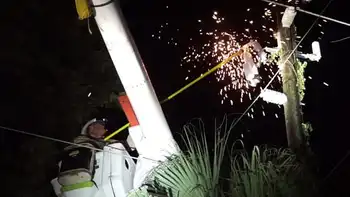Top polluters oppose caps in Bali
By Associated Press
Arc Flash Training CSA Z462 - Electrical Safety Essentials
Our customized live online or in‑person group training can be delivered to your staff at your location.

- Live Online
- 6 hours Instructor-led
- Group Training Available
But that's not a worry to the organizers of the U.N. climate conference, who say they only want to jump-start the world's talks toward a new climate accord.
"This meeting is not about delivering a fully negotiated climate change deal, but it is to set the wheels in motion," the U.N. climate chief, Yvo de Boer, said.
Presidents, prime ministers and environmental ministers prepared to join discussions on how to head off the impacts of rising temperatures, from rising oceans to deadly droughts and diseases.
"Reaching a conclusion even in two years is going to be very ambitious, let alone trying to achieve that kind of result in two weeks," de Boer said.
The main negotiating text for the Dec. 3-14 meeting on the Indonesian island of Bali mentions targets for reducing the amount of pollutants pumped into the atmosphere, but in a nonbinding way.
Its preamble notes the widely accepted view that industrial nations' emissions should be cut by 25 percent to 40 percent below 1990 levels by 2020, and that global emissions must be slashed to half of 2000 levels by mid-century.
There is little chance those numbers will make it into the final document, de Boer said, but they will more than likely spark renewed debate at the Bali talks, which are meant to launch a two-year negotiation for a post-Kyoto Protocol agreement.
Delegates will, among other things, decide in the next week what issues to include in a "Bali roadmap," including likely references to the importance of helping the most vulnerable nations adapt, and the need to provide developing countries with the technical know-how they need to reduce emission.
As for mandatory caps, de Boer said, "I really hope that that is a discussion that will be taken up toward the end of that two years rather than here."
The Kyoto pact, which was rejected by the United States, commits three dozen industrial countries that signed on to cut emissions by an average of 5 percent below 1990 levels in the next five years.
One of the reasons Washington did not sign on was because the pact did not set targets for fast-developing countries like China. The two nations are the largest emitters of climate-changing gases, though scientists do not always agree which tops the list.
The chief U.S. negotiator said Washington would come up with its own plan to cut global-warming gases by mid-2008, and would not commit to mandatory caps in the coming days.
"We're not ready to do that here," said Harlan Watson, whose country favors a more voluntary approach to cuts.
That process of U.S.-led talks was inaugurated last September by President Bush, who invited 16 other "major economies" such as the Europeans, Japan, China and India, to Washington to discuss a future international program of cutbacks in carbon dioxide and other heat-trapping emissions.
Watson said the final decision would likely be announced at a "leaders" meeting in the middle of next year.
Environmentalists accuse the Bush administration of using those parallel talks to subvert the long-running U.N. negotiations and the spirit of the binding Kyoto Protocol.
China, which is increasingly turning to coal-powered electricity plants and factories to help fuel its booming economy, has also stood firm in saying it would not agree to binding targets. It says the West is responsible for rising temperatures, because it has been pumping climate-changing gases into the air for centuries.
"China is in the process of industrialization and there is a need for economic growth to meet the basic needs of the people and fight against poverty," said Su Wei, a top climate expert for the Chinese government and member of its Bali delegation.











